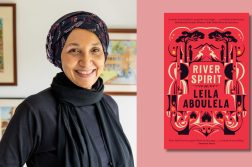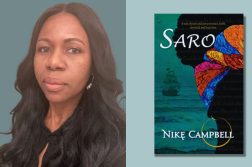Book: The Hairdress of Harare
Author: Tendai Huchu
Hair is life. Vimbai understands this, it is why when customers come into the Khumalo Hair and Beauty Treatment salon and plop themselves in her coveted chair with demands to look like whatever supermodel in the torn out American fashion magazine page clutched in their hands, she gives them exactly that; they walk in the salon like any ordinary woman and leave feeling like a beautiful white woman.
Set within an upbeat and competitive hairdressing salon, the slow-paced streets of Harare and the uptown estates of its nouveau , Tendai Huchu lets the reader into the life of Vimbai; single, independent young mother, the most sought hairdresser in Harare and queen bee of the Khumalo salon and how her life takes an unexpected turn when Dumisani, an unknown impeccably groomed young man with outstanding hairdressing skills is employed after a vacancy is created and within a matter of days upstages Zumi as the salon favourite. Things get more interesting when Dumi moves into a spare cottage in Zumi’s home as a tenant and the pair develop an intimate friendship and later on, a complicated type of love affair which ends with the revelation of taboo sexual orientations and relationships, and a great deal of physical and emotional pain.
The events in the book occur in the post apartheid and the government which is now the Mugabe administration. Vimbai has a daughter from her relationship with a married man as a teenager that went sour, she lives in the middle class section of the town, a privilege she enjoys when her late brother Robert leaves the house to her and her daughter after his sudden death in a foreign country, a bequest that alienates her from the rest of the family who would rather have the house to themselves. Vimbai’s only ally is the family philosopher Fungai. The economic situation in the country is hard; people hold on to whatever jobs they have like a lifeline, common foodstuffs and supplements usually taken for granted are now acquired by favours and knowing the right people. The street interactions however still have some universal elements to them, there is the Kombi which is the cheap and available medium by which the common people transport themselves and of course, the usual disgruntled man who won’t take no for an answer and would rather resort to insults for his rebuffed efforts.
As the book unfolds, it is clear that whatever financial hard times the people of Zimbabwe are going through, a select part of the society still have it as good as any. When Dumi takes Vimbai to his home during his brother’s wedding and unexpectedly introduces her as his girlfriend to the bewilderment of Vimbai and the unabashed joy of his family, Vimbai discovers Dumi’s wealthy background and she and her daughter walk into the exclusive and luxurious lifestyle of the upper class which climaxes with her getting an upscale hair salon of her own smack in the busiest and most elite shopping complex in town as a birthday gift from her new family.
Vimbai’s fairy tale love affair is however fraught with a lot of questions and unexplained behaviour which Dumi makes little or no effort to explain. Vimbai soon resolves that Dumi is cheating on her and is determined to find evidence of this affair, one night she sneaks into his room in his absence and unearths his journal where she finds that Dumi has been keeping a lot of secrets and is indeed having an affair, just not the sort she imagined.
The revelation of Dumi as an homosexual at this point of the book and that his current lover is the husband of Minister M, one of Vimba’s former customers at the Khumalo salon does not come off as too much of a shock to the attentive reader as Tendai has been dropping hints of this since introducing the fascinating character; the sexual tension between Dumi and the minister’s husband on their second meeting, the seemingly innocuous allusion of an intimate friendship between Dumi and a Colin who would later be revealed as Dumi’s first lover by a store clerk when Dumi and Vimbai go shopping for clothes, the gratitude of Dumi’s parents to Vimbai for ‘curing’ him and so on. And so, this confirmation of the reader’s suspicions is not so much of a climax than a resolution of all initial doubts raised. Vimbai, predictably does not take this news well and after Dumi flees on being confronted with the contents of his journal, Vimbai goes on to reveal the whole sordid affair to the minister.
The tone in this book succeeds at being light and the buildup of the story progresses with ease. Tendai manages to make the economic and political landscape of present Zimbabwe visible without detracting from the storyline or sounding didactic. Vimbai, from whose point of view the narrative flows is an interesting character; strong and persistent as can be seen in the way she rises in spite of her unexpected pregnancy and the conflict with her family, she is also perhaps a bit self-absorbed but still comes off as being very relatable and likeable. Her reaction after finding out about Dumi’s secret and the attitude of Fungai’s circle of philosophers reveals how narrow and hypocritical the average person can be when confronted with homosexuality.
It is quite amusing that Vimbai who was raped by her daughter’s father as a teenager and who has to check her toddler’s body daily for signs of sexual abuse from unknown predators aligns with the society that calls consenting homosexual adults lower than pigs and dogs. With the Hairdresser of Harare, the plot and tone comes off as deceptively simple and ordinary but all the same manages to pull off an insightful tale with a sharp narrative commentary.


